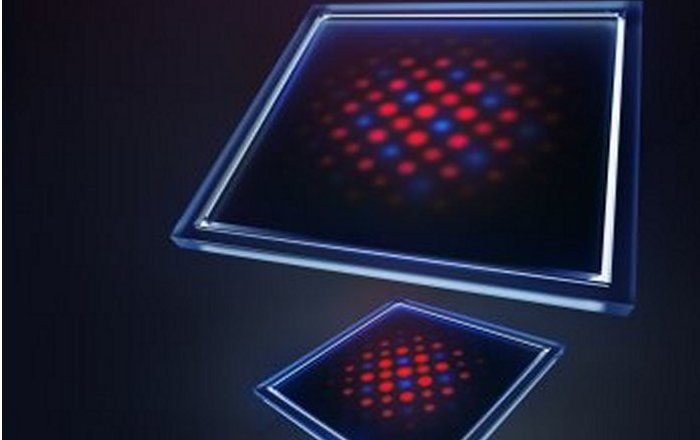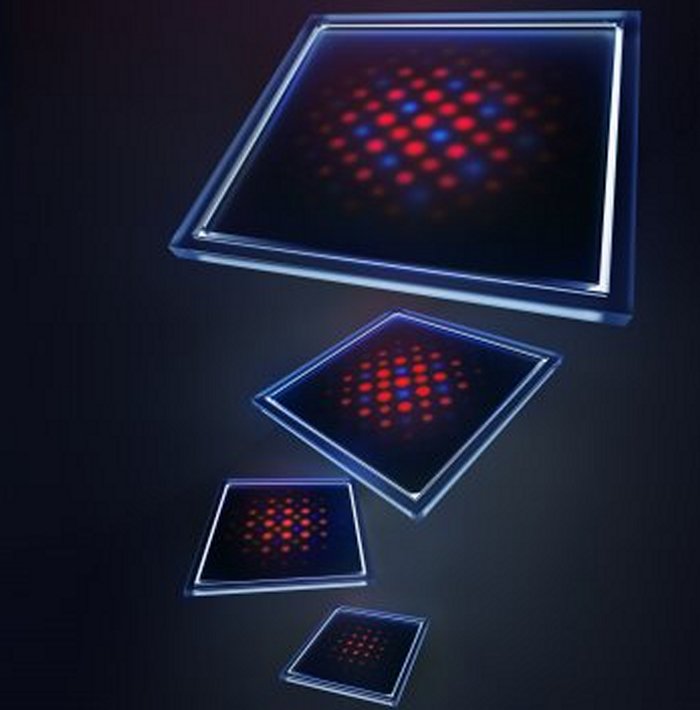Eddie Gonzales Jr. – MessageToEagle.com – Researchers at Yale have for the first time, using a process known as quantum error correction, substantially extended the lifetime of a quantum bit—a long-sought-after goal and one of the trickiest challenges in the field of quantum physics.
Image credit: Yale University
Led by Yale’s Michael Devoret, the experiment proves—decades after its theoretical foundations were proposed—that quantum error correction works in practice. Quantum error correction is a process designed to keep quantum information intact for a period of time longer than if the same information were stored in hardware components without any correction.
The results were published March 22 in Nature.
Information in classical computing comes in the form of bits corresponding to ones or zeros. In quantum computing, information is stored in special devices with quantum properties that are known as quantum bits, or “qubits.” In the lab of Devoret, the Frederick W. Beinecke Professor of Applied Physics, these qubits are constructed with superconducting circuits cooled to temperatures 100 times lower than those in outer space. The qubits can each represent a one or a zero, or—confoundingly—both one and zero at the same time. This “quantum parallelism” is one of the properties that enables quantum computers to make calculations that will potentially be orders of magnitude faster than what is possible on classical supercomputers, and transform multiple industries.
Quantum systems, though, are fragile. They are bedeviled by a fundamental phenomenon of decoherence, a process in which the information stored in qubits quickly loses its quantum properties as a result of their interactions with the surrounding environment.
Quantum error correction, which was theoretically discovered in 1995, offers a means to combat this decoherence. Employing redundancy, it protects the quantum bit of information by encoding it in a system larger than what, in principle, is needed to represent a single qubit.
This larger system, however, makes the effect of the surrounding environment even more invasive and the encoded qubit even more fragile. Because of this effect, and complications from the additional components required to perform error correction, this process had never been able to definitively extend the lifetime of a quantum bit in practice. In fact, just breaking even with an uncorrected qubit is a rare event, researchers say. Contrary to theoretical promises, in most experiments, error correction accelerates the decoherence of quantum information.
“For the first time, we have shown that making the system more redundant and actively detecting and correcting quantum errors provided a gain in the resilience of quantum information,” Devoret said. “Our experiment shows that quantum error correction is a real practical tool. It’s more than just a proof-of-principle demonstration.”
Devoret’s group has managed to more than double the lifetime of quantum information. Their error-corrected qubit lived for 1.8 milliseconds—things happen fast in the quantum realm.
They achieved their results using an error-correction code that was invented in 2001. “It gives you a sense of the delay between the theoretical proposals and practical realization of them in our field,” Devoret said.
Volodymyr Sivak, the lead author of the paper, said that this performance was achieved in part by employing a machine-learning agent that tweaked the error correction process to improve the outcome.
“There is no single breakthrough that enabled this result,” said Sivak, a former Ph.D. student in Devoret’s lab and now a research scientist at Google. “It’s actually a combination of a whole bunch of different technologies that were developed in the past few years, which we combined in this experiment.”
The practical success of quantum computing will hinge on being able to create quantum bits of extremely high quality using quantum error correction. “Our experiment validates a cornerstone assumption of quantum computing, and this makes me very excited about the future of this field,” said Sivak.
Written by Eddie Gonzales Jr. – MessageToEagle.com Staff








